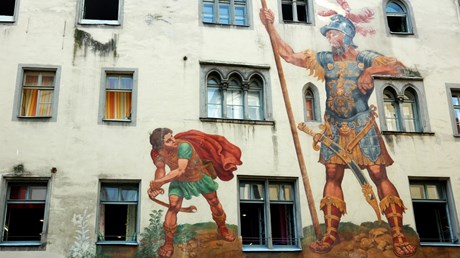We’re too quick to ignore one of Paul’s most persistent warnings.

This is a good year to think about boasting. That’s true for at least three reasons. Trivially, because American public discourse involves an unusual amount of boasting. (We’ll fix health care for good, or crush ISIS, or “make America great again.”) Historically, because this is the 500th anniversary of the Reformation, which Martin Luther (among others) saw as a call for the church to boast not in works, but solely in the Cross of Christ. Theologically, because the contemporary church hardly ever mentions the concept—even though the apostle Paul mentioned it dozens of times in just a few short letters.
The problem could be our fairly childish perspective on what counts as “boasting.” To modern ears, it sounds like a six-year-old saying, “My dad is bigger than your dad,” or a professional wrestler’s trash-talk, or perhaps a presidential Twitter feed. So when we hear Paul railing against boasting in anything other than Christ crucified, we might assume it doesn’t apply to us. Boasting? I haven’t done that since “I’m the king of the castle.”
In the ancient world, however, boasting was not just child’s play; it was deadly serious. You would boast as you went into battle, reassuring yourself that victory was certain. Goliath did it to David: “Come to me, and I will give your flesh to the birds of the air and to the beasts of the field” (1 Sam. 17:44, ESV throughout). Messengers from enemy nations did it to Jerusalem: One warning mocked “the men sitting on the wall, who are doomed with you to eat their own dung and drink their own urine” (Isa. 36:12). This sort of boasting has provided iconic moments in the history …
Source: Christianity Today Most Read